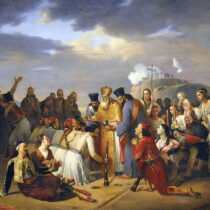Martial’s epigrams refer to the trading of fragments or failed glass products which were intended to be recycled in the glass workshops.
The archaeological finds from the salvage excavations of the last decades in Rhodes confirm the extensive glass recycling in antiquity, known until today only from written sources. The recent finds, located in the town and in the extensive necropolis of ancient Rhodes, prove that glass recycling -of glass remnants and failed products of glassworking- was known not only in the Roman period, but also in the Hellenistic era. Besides the workshop remnants and the failed products of glassworking in the form of cullet, fragments, scraps or deformed objects, there are also recyclable glass products of glassmaking, mainly pieces of semi-melted or glass-transformed raw glass and coloured or colourless chunks, which would give a good quality of well-melted and flexible glass.
In the present study, the role and contribution of the recycled products of glassworking and glass¬making is stressed as regards the saying of energy and raw materials, which were used in the making, colouring and working of glass; thus, it is emphasized the multi-lateral technological knowledge of the ancient glass craftsmen, which has more or less remained unknown until today.

